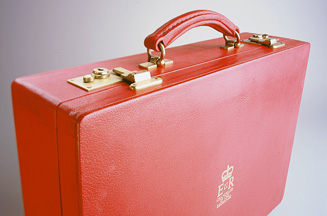
The Chancellor's Budget, delivered last week, heralds a lengthy period of hardship in public finances. Experts warn that marketers must reflect this by rapidly transforming the way they promote brands.
The government's strategy to address the recession will leave a hole in the public finances of £90bn annually for years to come, according to The Institute for Fiscal Studies. Plugging that gap will cost every UK family £2840 a year by 2017, it said. Consumer spending and government spending on public services have stalled. Forecasts suggest UK GDP could slump by up to 4% this year and some predict low growth for years to come.
Marco Bertini, professor of marketing at London Business School, said the way consumers choose goods will be modified as they seek bargains in a new era of austerity. ‘The consideration stage between recognising a need and fulfilling it will become much longer and more important as people look for value,' he said. ‘Consumers are getting more creative in finding value-for-money solutions to problems and are looking at alternative categories.'
Chris Sanderson, director of strategy and insight at trend analysts The Future Laboratory, describes the current economy as being in a state of ‘cataclysmic change'.
Recession is feeding into a broader trans-formation in consumption patterns. It is a change that began earlier this decade with an increased consumer focus on ethical and environ-mental concerns. ‘Once we are through this recession, things will never go back to how they were,' warns Sanderson.
He also believes that consumers will save more rather than reverting to credit. Surprisingly, 25- to 34-year-olds emerged as the age group saving most in the last quarter of 2008, according to state-owned savings bank NS&I.
Its study showed that the household savings ratio (savings as a percentage of disposable income) nearly tripled to 4.8% between October and December from 1.7% in the previous quarter. Last week's one-third increase in the tax-free limit on ISA savings, to £10,200, may further promote saving.
Shifting influences
While caution is likely to lead those consumers who have lost out since the banking crisis took hold to save rather than spend, other key factors will also be in play.
Some experts predict that traditional advertising will begin to play a smaller role in influencing choices, as the influence of families, friends and social networks on purchasing habits grows. Online research, meanwhile, will take on a wider role in decision-making.
Most observers believe that retailers' recent focus on price cuts is unsustainable, and that there will eventually be a return to promoting quality and the emotional benefits of brands.
‘The big issue brands must face is how they justify their price premiums,' says Mark Wickens, chairman of branding agency Brandhouse. ‘People on tight budgets still care what buying a brand says about them - they want to feel good about their purchases,' he adds. ‘You can never cut your way to growth. In the long term, you have to invest in your assets.'
The length of the recession will have an enormous bearing. If, as the Chancellor predicts, growth returns in 2010, consumers could revert to their former spending habits. If, however, we are still in recession, Wickens says people's discount habits will have become more ingrained and therefore harder to change.
Small luxuries such as chocolate, home-delivery pizza and lipstick are now proving resilient. People are spending more eating in rather than dining out, and taking on their own DIY projects rather than hiring builders and decorators.
Meanwhile, Malcolm McDonald, emeritus professor of marketing at Cranfield University School of Management, believes the strength of the UK's SMEs and major companies will limit the recession's length. ‘The best companies are focusing on core markets and doing genuine 80/20 segmentation, not just slashing and burning,' he says. ‘They are spending less, but more effectively, and will get a higher share and stronger brand.'
UK public services may be facing a decade of austerity, but despite likely tax rises, for the time being, at least, household budgets are being kept buoyant by record low interest rates.
The national economy may remain under pressure for years, but it is far from a disaster for brands that under-stand how to make the most of their marketing assets.


.jpg)


.jpg)